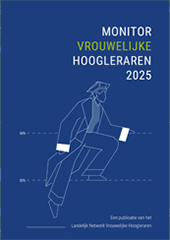Twee internationale prijzen voor prof.dr. Annemarie Mol
In het najaar van 2004 heeft het boek The Body Multiple: Ontology in Medical Practice van Annemarie Mol (1 dag in de week Socrates hoogleraar Politieke Filosofie in Twente) twee internationale prijzen gewonnen. De Fleck Prize van 4S (Society for Social Studies of Science) en de Sociology of Health and Illness Book Prize van de BSA Medical Sociology Group.Annemarie Mol
The Body Multiple. Ontology in Medical Practice
Duke University Press, 2002
Back cover:
The Body Multiple is an extraordinary ethnography of an ordinary disease. Drawing on fieldwork in a Dutch university hospital, Annemarie Mol looks at the day-to-day diagnosis and treatment of atherosclerosis. A patient information leaflet might describe atherosclerosis as the gradual obstruction of the arteries, but in hospital practice this one medical condition appears to be many other things as well. From one moment, place, apparatus, specialty, or treatment to the next, a slightly different "atherosclerosis" is being discussed, measured, observed, or stripped away. Mol demonstrates that this multiplicity does not imply fragmentation. Instead, the disease is made to cohere through a range of tactics including transporting forms and files, making images, holding case conferences, and conducting doctor-patient conversations.
The Body Multiple juxtaposes two distinct texts. Alongside Mol’s analysis of her ethnographic material—interviews with doctors and patients; observations of medical examinations, consultations, and operations—runs a parallel text in which she reflects on the relevant literature. Mol draws on medical anthropology, sociology, feminist theory, philosophy, and science and technology studies to reframe such issues as the disease-illness distinction, subject-object relations, boundaries, difference, situatedness, and ontology. In dialogue with one another, Mol’s two texts meditate on the multiplicity of reality-in-practice.
Presenting philosophical reflections on the body and medical practice through vivid storytelling, The Body Multiple will be important to those in medical anthropology, philosophy, and the social study of science, technology, and medicine.
Bron: www.amazon.com
Society for Social Studies of Science (4S)
Fleck Prize
Awarded annually for the best book in the area of science and technology studies. Created by the 4S Council in August of 1992. The author(s) receives a monetary stipend and an engraved plaque. Please submit book nominations (author, title, publisher) directly to any officer, council, or committee member.
Eligibility
Each year the committee will review books with publication dates in the 3 years prior to the year the prize is awarded. (For example, for prize to be selected at the 2002 meeting, books published from 1999 through 2001 are eligible. This prize will be awarded at the banquet in the following year.) Authors need not be members of the Society for Social Studies of Science. It is permissible to resubmit works that have already been considered in a previous year so long as their eligibility has not expired.
Content areas
"Science and technology studies" is an interdisciplinary field, so the range of eligible books is very broad. It includes, but is not limited to, the disciplines of sociology, anthropology, history, philosophy, political science, economics, geography, and psychology as well as works combining or outside of the traditional academic disciplines. It includes studies of knowledge, policy, government, R&D, the uses of expertise, technological controversies, technology transfer, feminist studies, rhetorical and literary analyses, and studies of specific technologies. The main criterion is that the substantive content of the work be concerned with science and/or technology, however defined. The Ludwik Fleck Prize is named after microbiologist Ludwik Fleck (1896-1961), author of the Genesis and Development of a Scientific Fact. Fleck's case history of the discovery of the Wassermann reaction to syphilis, was originally published in German in 1935, and republished in English in 1979 after having been cited by Thomas Kuhn as an important influence on his own conception of the history of science. Both Fleck's history of discovery, and the history of his book's re-discovery, exemplify a view of progress that continues to inform research in the science and technology studies fields.
Bron: www.4sonline.org
Sociology of Health and Illness Book of the Year
The BSA Medical Sociology Group wishes to award a prize of £1000 at the 2004 (16th-18th September) annual conference to the author/s or editor/s of the book judged to have made the most original and significant contribution to the sub-discipline and having been published in the 3 years preceding January 2004.
We welcome nominations from colleagues who are BSA members and who have not been involved in editorship or authorship of the book that they nominate. There is no restriction on the nationality of the authors, editors or publishers of the book and no restrictions on the topic, style or genre of the book, although it must be in English.
Bron: www.britsoc.co.uk


